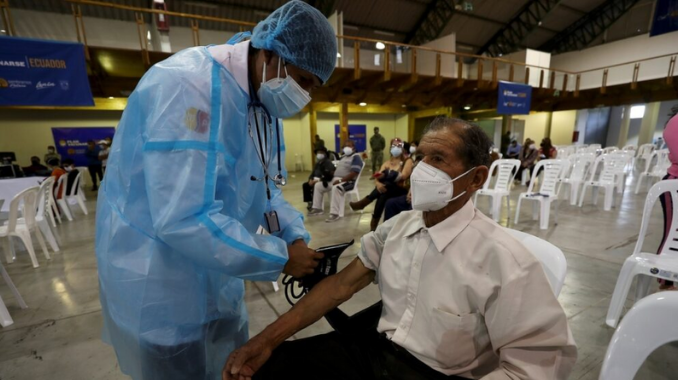
Ecuadorian epidemiologist Daniel Simancas warned that the arrival of the delta variant of COVID-19 changed the rules in the control and management of the pandemic, with respect to the expected herd immunity. The key: advance the vaccination plan.
Before the delta variant, from India, spread around the world, there was talk of vaccinating 70% of the population of a country to achieve immunity. The current Government maintains a vaccination plan to achieve, in 100 days, the inoculation of 9 million inhabitants.
With this goal, almost 70% of the immunized population would be reached. Daniel Simancas warned that this percentage is no longer sufficient. Now, 95% will be needed.
In his social networks, he explained that by increasing the contagion capacity (which is a characteristic of the variant that turns on the alarms) and lowers the percentage of effectiveness of the vaccines, there must be a greater number of inoculated citizens.
Simancas clarified that vaccines “do not prevent infection, but they save lives and we have to motivate immunization.” He suggests increasing coverage to 100% with those who can and devising more effective vaccines or a booster. On this last suggestion, the pharmaceutical company Pfizer announced that a third dose or booster will be necessary for the variants that, without a doubt, will continue to appear and become more resistant.
For the specialist, sooner or later, those who do not get vaccinated will be infected. The scientific community has asked citizens not to lower their guard and maintain measures: avoid crowds, correct use of the mask and wash hands.
So far, in Ecuador, 6.3 million people have received the doses of the vaccines (Sinovac, Pfizer, AstraZeneca): 4.6 million received the first dose and 1.7 million both doses.

Be the first to comment